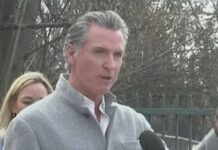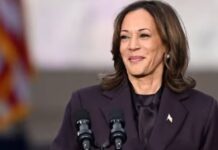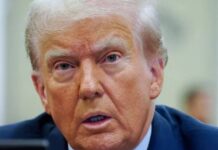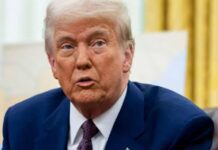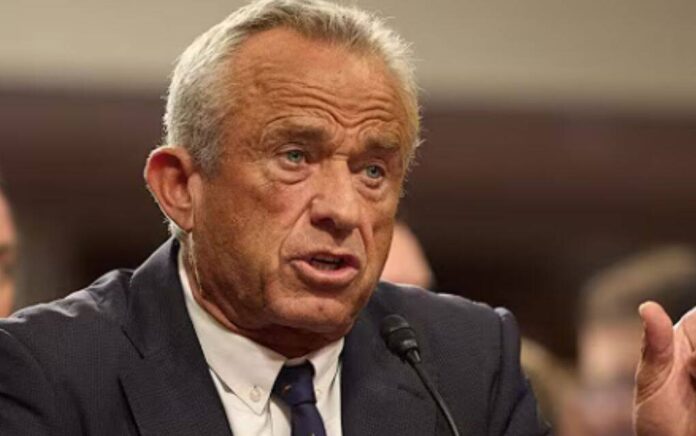
President Trump was just blindsided. The Senate has thrown him for a major loop.
And Trump’s second term has been permanently changed thanks to this U.S. Senate vote.
Robert F. Kennedy Jr. Confirmed as HHS Secretary After Heated Senate Battle
In a historic and contentious vote, the Senate confirmed Robert F. Kennedy Jr. as President Trump’s Secretary of Health and Human Services on Thursday. The decision capped a fierce debate over Kennedy’s views on vaccines, which had sparked division among Republicans and drawn sharp opposition from some Democrats.
The 52-48 vote secured Kennedy a leadership role overseeing the nation’s vast health system, with a budget of approximately $1.7 trillion. Every Democrat, along with Senate Minority Leader Mitch McConnell (R-Ky.), opposed his confirmation. However, key Republican senators, including Susan Collins (R-Maine) and Lisa Murkowski (R-Alaska), ultimately backed Kennedy.
RFK Jr. has been confirmed as HHS Secretary in a 52-48 vote.
— Libs of TikTok (@libsoftiktok) February 13, 2025
The only Republican who voted no was Mitch McConnell. pic.twitter.com/GwVKYoHUMb
Murkowski, who had initially hesitated, addressed her concerns directly. “I continue to have concerns about Mr. Kennedy’s views on vaccines and his selective interpretation of scientific studies, which initially caused my misgivings about his nomination,” she stated. She emphasized the critical role vaccines have played in saving lives and noted that Kennedy had provided assurances that he would not obstruct vaccination efforts. “He has made numerous commitments to me and my colleagues, promising to work with Congress to ensure public access to information and to base vaccine recommendations on data-driven, evidence-based, and medically sound research,” she continued. “These commitments are important to me and, on balance, provide assurance for my vote.”
Sen. Bill Cassidy (R-La.), chair of the Senate Health, Education, Labor, and Pensions (HELP) Committee, which vetted Kennedy, also backed his nomination after securing a commitment for regular meetings and an emphasis on the importance of immunizations.
Kennedy has long been an outspoken critic of vaccine safety and efficacy, authoring books and leading the nonprofit Children’s Health Defense, which has challenged the government and pharmaceutical companies on vaccine policies. His past remarks about vaccines became a focal point during his confirmation hearings, as Democratic senators grilled him on his past statements and their potential implications for public health policy. Despite this scrutiny, Kennedy repeatedly insisted that he’s “pro-vaccine.”
McConnell, a polio survivor, stood firmly against Kennedy’s confirmation, emphasizing the proven benefits of immunization. “I’m a survivor of childhood polio. In my lifetime, I’ve watched vaccines save millions of lives from devastating diseases across America and around the world,” McConnell said after the vote. “I will not condone the re-litigation of proven cures, and neither will millions of Americans who credit their survival and quality of life to scientific miracles.”
Further controversy surrounded Kennedy’s past statements on issues beyond vaccines. He previously suggested that Lyme disease was a military-engineered “bioweapon,” that COVID-19 was “ethnically targeted” against black and Caucasian people, and that he would not take a stance on the September 11, 2001, terrorist attacks. He did downplay or walked back these remarks, however.
Despite some stumbles during hearings—including distinguishing between Medicare and Medicaid—Kennedy received broad Republican support. Senate Finance Committee Chairman Mike Crapo (R-Idaho), whose panel played a key role in evaluating Kennedy’s nomination, praised his commitment to public health reform.
“Mr. Kennedy’s decades of experience and deep drive to advocate on behalf of consumers will set a patient-centered tone at the department,” Crapo said on the Senate floor. He highlighted Kennedy’s passion for tackling chronic disease, an issue the new HHS secretary has frequently cited as a core priority.
Kennedy’s advocacy for chronic disease prevention and health reform resonated with some across the political spectrum, even earning an endorsement for his “Make America Healthy Again” initiative from Sen. Bernie Sanders (I-Vt.).
However, neither Sanders nor Kennedy’s former law school classmate, Sen. Sheldon Whitehouse (D-R.I.), broke ranks with Democrats in the confirmation vote.
During his first confirmation hearing, Kennedy pointed to America’s growing health crisis, citing alarming statistics about obesity:
“When my uncle was president, 3% of Americans were obese. Today, 74% of Americans are obese or overweight,” Kennedy said to Sen. Ron Johnson (R-Wis.). “Epidemics are not caused by genes. Something is poisoning the American people, and we know that the primary culprit is our changing food supply.”
Crapo expressed confidence in Kennedy’s ability to lead, stating, “As he has demonstrated in both public and private settings, Mr. Kennedy is committed to reorienting our approach to health care and restoring faith in our institutions.” He promised that Kennedy’s leadership at HHS “will save lives, reduce costs, and establish a foundation for a healthier, stronger country.”
With Kennedy now confirmed, President Donald Trump is one step closer to having his entire cabinet in place and therefore closer to achieving the goals he was elected to accomplish.
Stay tuned to The Federalist Wire.



